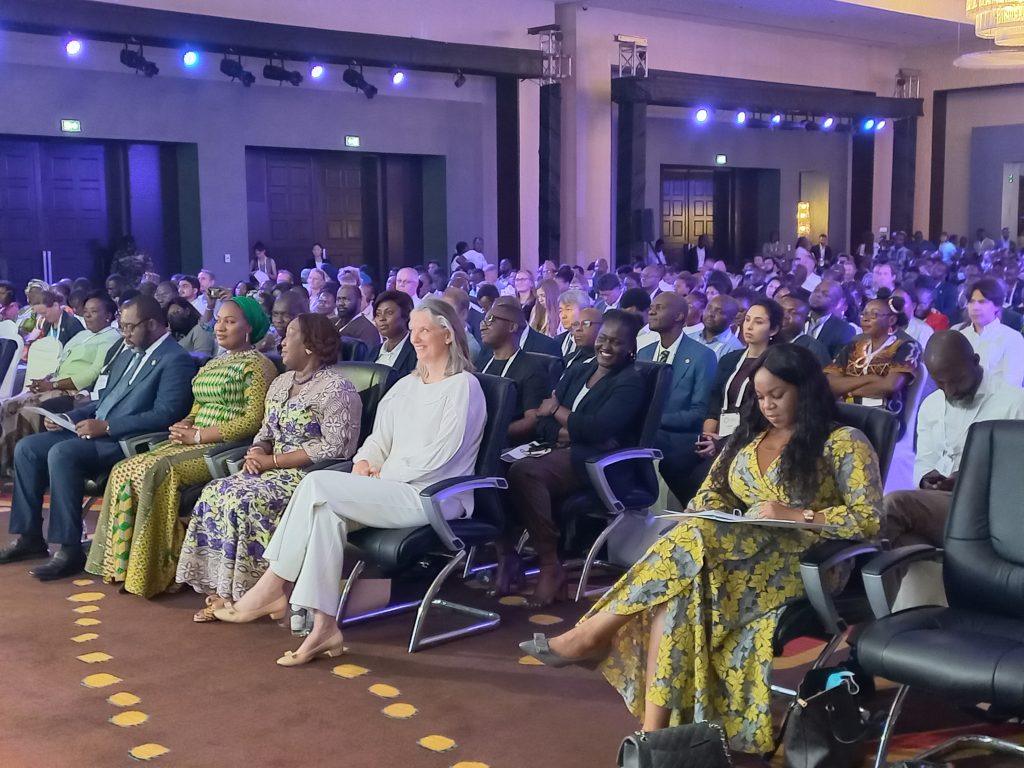By Priscilla Oye Ofori
Accra, Oct 11, GNA- Mrs Samira Bawumia, the Second Lady, has called for the integration and involvement of women in the design and production of locally appropriate technologies.
She said the contributions of women who were users of unclean fuels were vital to shaping the clean cooking value chain from the design, production, distribution, sale, and consumption of clean cooking technologies.
Mrs Bawumia made the call at the opening of the 2022 Clean Cooking Forum organised by Clean Cooking Alliance in Accra, which brought together global government representatives, policymakers and experts in the energy sector.
Studies show that household air pollution, which is driven largely by indoor cook stoves accounted for 700,000 fatalities, while increased outdoor air pollution claimed 400,00 lives.
In Ghana, the World Bank estimates that 16,000 people die prematurely from air pollution every year.
Mrs Bawumia said: “Women are at the heart of clean cooking issues, bearing the brunt of its effects.”
She noted that in most rural communities, women and children travelled long distances to collect fuel in the form of firewood, a time-consuming and exhausting task, which did not offer much time for other productive activities.
“In addition to being strenuous, there are many risks involved; bites from venomous animals and increased risk of sexual assault,” the Second Lady added.
Mrs Bawumia said it also limited access to education, which tended to restrict opportunities for economic growth, in addition to the adverse health impact.
She said women and children were, especially affected and burdened by time-intensive household tasks as a result of the usage of unclean cooking fuels resulting in poverty and poor maternal and child health.
The Second Lady underscored the need to integrate clean cooking into government programmes and policies and encouraged the use of sustainable clean cooking solutions.
She said a concerted and high political will was essential to ensure the progress of the clean cooking sector.
Dr Matthew Opoku Prempeh, Minister of Energy, said there was a need for effective coordination and transparent accounting systems that were internationally acceptable, to unlock the enormous investment and financing opportunities available for the clean cooking sector.
“For this reason, I welcome the establishment of the Delivery Units Network (DUN) in Ghana and to be hosted by the Ministry of Energy,” he added.

He said the Ministry of Energy in collaboration with the Energy Commission launched the Senior High Schools Renewable Energy Challenge, a platform for second-cycle schools to develop an interest in research and development, innovating renewable energy and clean cooking solutions for the Ghanaian market and beyond.
He said that other capacity development strategies would enable Ghana to meet the medium to long-term capacity needs of the industry.
The Minister announced that the Ministry was developing the National Clean Cooking Strategy and Investment Prospectus with support from the World Bank to provide the framework for the promotion and development of the industry.
Madam Adwoa Etsiwaa Sey, Board Chair, Ghana Alliance for Clean Cookstoves and Fuels (GHACCO), said lack of access to clean cooking continued to be a challenge for many countries, especially in Sub-Saharan Africa.
Hence, she said: “We ought to go back to the kerosene experience and relearn the processes we used to make kerosene available and affordable for all. We may not have to reinvent the wheel. The keys to unlocking global access are right here with us.
Madam Katja Lasseur, Deputy Head of Mission, Netherlands Embassy in Ghana, said to ensure that everyone was included on the road to universal energy access, it was imperative to address the affordability gap.
GNA